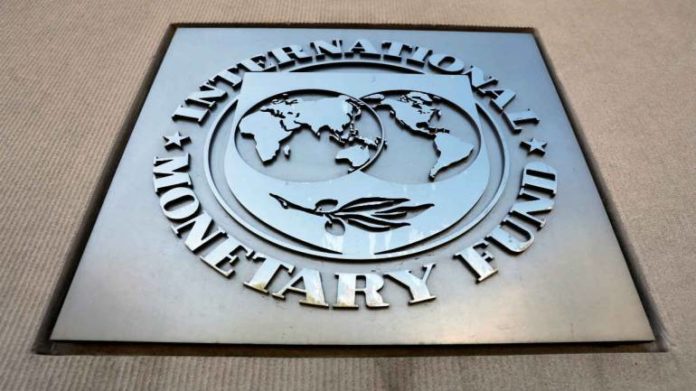The International Monetary Fund (IMF) says it is ready to step in should Ghana file for assistance following shortfall in government revenue.
This was in response to an e-mail sent to the Fund by JoyBusiness over calls for government to subscribe to seek an IMF support to help stabilize the economy.
“As always, the IMF stands ready to support Ghana in any way deemed useful by the authorities,” parts of the mail read.
It, however, disclosed that “The Ghanaian authorities have not requested for a programme with the IMF.”
The Fund further indicated that throughout the Covid-19 pandemic, the IMF has maintained a close policy and technical assistance dialogue with the authorities.
It also comes amidst government’s intention to introduce an Electronic Transaction Levy (E-levy) where 1.75% charge will be deducted from every transaction above GH¢100.
However, opposers of the tax policy have called for Ghana to subscribe to an IMF programme to deal with the current revenue challenges and investor concerns about the economy.
Some economists have argued the move is the solution needed to “fully restore” investor confidence and deal with the challenges of revenue mobilization.
Some analysts have also cited the recent investor exit of “Ghana’s Bonds” as another clear example or reason why an IMF program is needed for Ghana.
Government of Ghana on going to the IMF
Government, on the other hand, has “pushed back” these calls, insisting it has what it takes to manage the economy and deal with the current challenges.
Several ministers engaged by JoyBuisiness have indicated that if the current revenue measures outlined in the 2022 Budget is firmly implemented, that will help to quickly turn things around and firmly stabilize the economy.
On Wednesday, the Deputy Energy Minister, Andrew Agyapa Mercer at a town hall meeting stated firmly that an IMF programme is not on the table.
“We’ve been to the IMF before, so already know their recommendations. You’ll be told to cut public sector expenditure, social investment will be reduced any money given to you will be debt added to your money and you would have to pay for it.
“So since we know all these, the we can initiate the policies internally to raise revenue in-house and its something government should consider,” he noted.
IMF and Ghana’s programme with the FUND
From the email it’s clear that, unless a formal request is made, FUND will not go out of its way to force the government to subscribe to an IMF program.
There have been instances in the past where the country’s development partners and investors had pushed for the country to subscribe to an IMF program.
But it still took the government to take that step to apply for a programme.
IMF on the Ghana’s Economy
The IMF in the email to JoyBusiness based on questions to the FUND, noted that “Ghana’s challenges stem from the fiscal and debt situation and less from the economic recovery.
Despite this challenge, the Fund noted that “Economic activity continues to bounce back from the 2020 pandemic shock”
But the FUND was quick to add that “As highlighted during the July 2021 Article IV consultation, a deeper and more equitable fiscal effort is needed to address fiscal and debt vulnerabilities”.
On the proposed 20 percent cut quarterly estimates, the IMF noted that the cut “go into that direction”
IMF on Ghana’s Economic growth prospects
IMF is projecting that economic growth will exceed 4 percent for 2021 and it is also forecasting that GDP growth rate in 2022 will reach 6 percent, this the IMF says will be driven by “rebound in the extractive sectors”
In the long term the IMF was of the view that “potential in agriculture, manufacturing, and services to create jobs for the youth”







